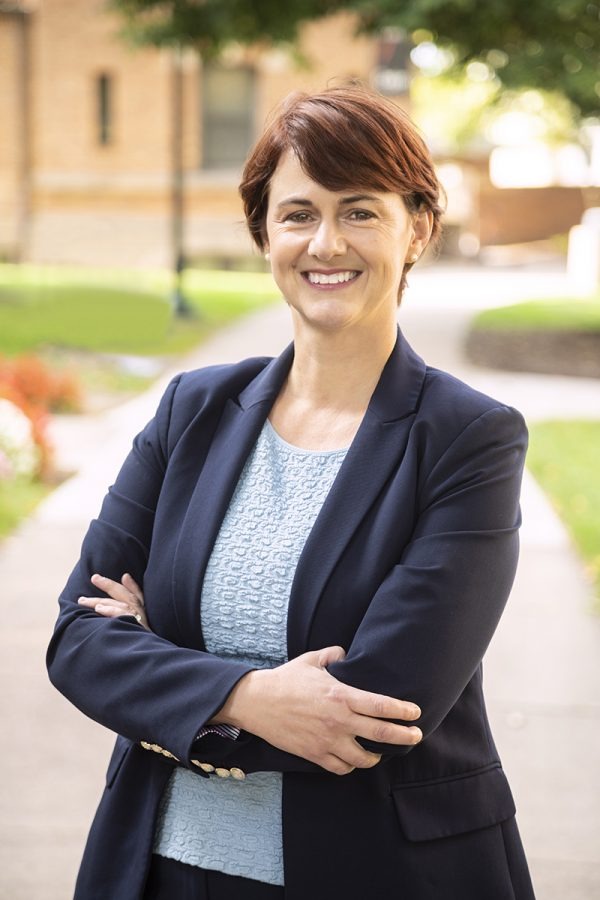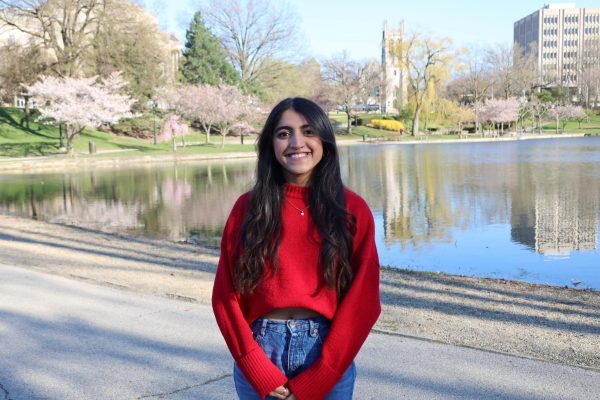The provost and executive vice president serves as the chief academic officer of Case Western Reserve University, providing leadership to promote the academic goals of the university. They also spearhead innovation in research and develop programs that encourage scholarship, collaboration and problem-solving among students and faculty. In short, the provost is the one making the big academic decisions—suggesting changes to curriculum and research that are in the best interests of the campus community.
In May 2023, President Eric Kaler announced that Ben Vinson III, former provost and executive vice president, would be stepping down to become president of Howard University; shortly after, a national search for a replacement was launched. A university committee, led by the School of Medicine Dean and Senior Vice President for Medical Affairs Stan Gerson, considered many “highly qualified candidates” identified by Education Executives, LLC, including then-Interim Provost Joy K. Ward. On Dec. 14, 2023, President Kaler announced that Ward would stay on in a permanent capacity, effective Jan. 1.
Prior to being interim provost, Ward served as the dean of the College of Arts and Sciences for three years. Here, she helped advance research through the Expanding Horizons program and efforts to increase research expenditures. She was also a co-creator of the HILLS program, which aims to promote diversity in leadership through the humanities.
In this new role, Ward will continue to oversee programs she started in her interim, as well as introduce some new ones. One of her most recent accomplishments was forming a 30-person AI taskforce in partnership with the Faculty Senate. Being guided by student-centered questions of “How do we best prepare our students for success in an AI world and beyond? How will AI affect the ways that students learn?” the task force has no student representation, composed solely of faculty, staff and administration. Still, Ward stated that the taskforce will seek to “understand the impacts of AI on student learning and teaching and produce a ‘roadmap’ for future leadership,” and she says that some initiatives will be implemented this fall.
Ward is also involved in the well-known transition to the new Unified General Education Requirements (UGER) curriculum, the replacement for SAGES. During this shift, Ward says several courses were revisited and many new courses were created. In some cases, departments “have taken this opportunity to refresh their approaches to entire major programs.” When asked about the faculty and student responses to these changes, Ward stated that “the responses have been very positive and encouraging.” One addition in particular, the Explore program, has successfully addressed students who have historically felt “disconnected from the community, and, at times, lack[ed] clarity on what the university, as well as the larger city and region, have to offer.” The Explore program is a series of pop-up events that help incoming students get immersed in the campus and the local Cleveland area. According to Ward, students are reporting overall satisfaction with this change and are glad to be participating in programs they would not have otherwise.
Arguably, one of Ward’s more controversial efforts has been her involvement in the Interdisciplinary Science and Engineering Building (ISEB), a $300 million project that has led to the demolition of Yost Hall and the displacement of the Department of Mathematics, Applied Mathematics and Statistics. In April 2023, The Observer reported on an open letter detailing faculty discontent with Yost’s demolition plans. While administrative offices in Yost were informed of potential changes, professors were left without direction, likely due to disrupted communication within the College of Arts and Sciences, then led by Ward. Now, when asked about the purpose of the ISEB and the benefits it poses for students and faculty, Ward said “the ISEB is intended to be a place that encourages interaction and collaboration among different disciplines—a place where scientists and researchers will solve some of the world’s most pressing problems.” Further, she believes that “[f]rom a student-perspective, the new lab space—plus the growth in faculty—means more opportunities for students to engage in cutting edge research and connect with mentors across disciplines.” Despite a rocky introduction, Ward believes that the ISEB will support a culture of collaboration and interdisciplinary engagement on campus.
Moving forward, Ward plans to meet regularly with student leadership and, like her predecessor, will hold student office hours for drop-in questions. By doing so, she seeks to acknowledge campus feedback to ensure changes are truly benefiting the people she serves.
From dean of the College of Arts and Sciences to provost of the university, Ward has been a leader at CWRU for years. Ward says she is “committed to the success of our students, the advancement of faculty teaching and research, and a focus on a community that values the dignity and humanity of each member of our community.”



